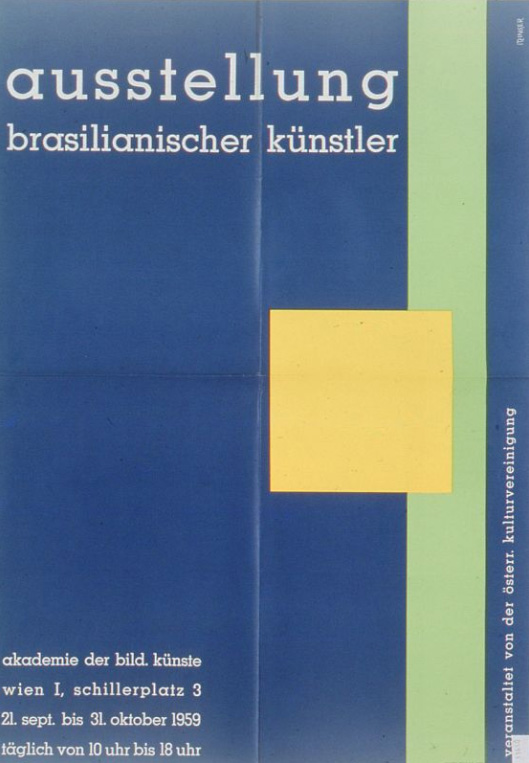
Dr. Susanne Neubauer
art historian, curator and associate researcher at Universidade de Brasília
Dr. Marcelo Mari (co-author)
Adjunct professor, Instituto de Artes Visuais, Universidade de Brasília
The year 1959 marks an exciting turning point in the European post-war period, since in this year the importance of modern and contemporary art was once again subjected to a status report, before New York, the new art capital, declared the farewell of the traditional panel painting. Brazil plays an important role in this context as a non-European-US-American country, since art in Brazil was about to take an individual path in 1959. At the same time it was shown more broadly internationally. Boosted by the founding of the São Paulo Biennial in 1951 and the construction of Brasília, which gained the attention of the world public at the latest with its inauguration as a planned capital in 1960, Brazilian art also entered the international discourse in the context of the trend of transnational exchange exhibitions. The lecture focuses on the first comprehensive group exhibition of Brazilian which toured European cities in 1959 and 1960. This exhibition, which showed works from the 1920s to the newest production, was also on view at the Vienna Academy of Arts as a second stop. The article sheds light on the cultural-political background of this pivotal exhibition and embeds it into the contemporary discourse around the various declining and emerging art movements such as Constructive Art, Abstract Expressionism and Art Informel. Understood as a microhistory, the second part of our investigation also looks at the journalistic dialogue conducted by the Brazilian art critic and intellectual Mário Pedrosa with European critics, especially the Austrian critic of Die Presse, Jorg Lampe. Lampe had been one of the few to take a nuanced view of the works on display in the exhibition.
Transatlantic Modernities between Brazil and Austria
Conference 3.3.2022–30.6.2022
Akademie der Künster Wien
Museu de Arte Contemporânea da Universidade de São Paulo (MAC USP)